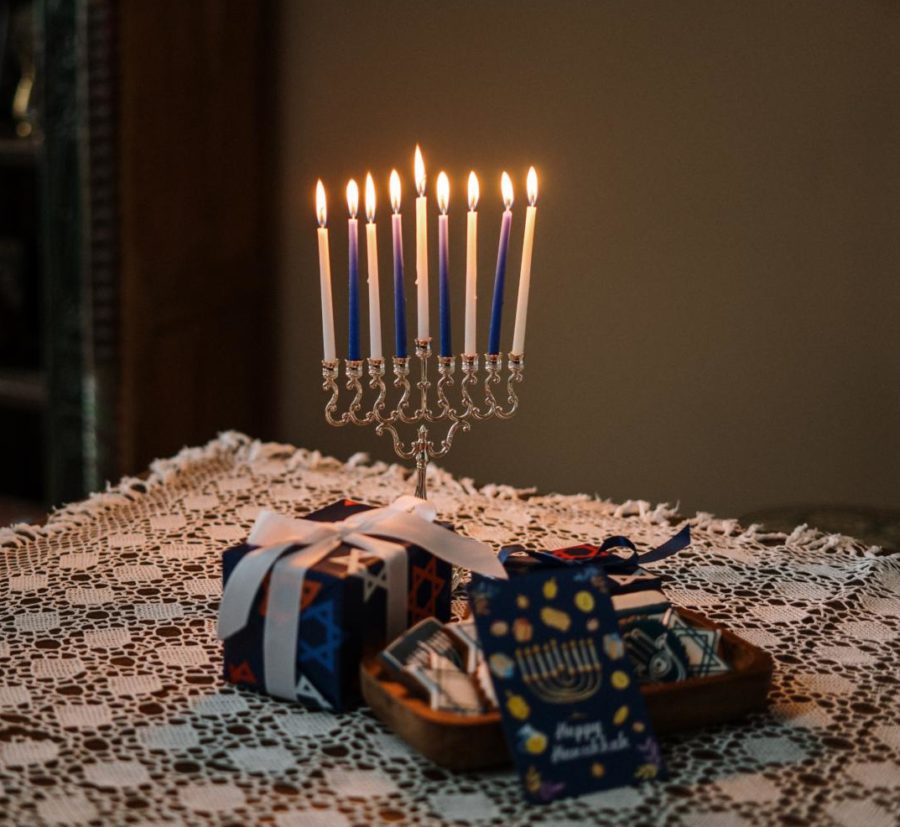What Hanukkah means at NHS
The start of sweater weather and the strong urge to drink coffee every morning signifies not just the approaching winter, but also the commencement of the holiday season. To most, this might mean bursting out into Christmas carols and shopping for Christmas gifts, but to five percent of Americans, according to the Associated Press, this time of year means the celebration of Hanukkah.
The holiday which means “dedication” in Hebrew usually falls in either November or December. This year, Hanukkah will begin on the evening of Sunday, Dec. 18 and end on the evening of Monday, Dec. 26, following the traditional eight-day celebration format, according to History.com. They state that while the story of Hanukkah does not appear in the Torah as the events that kindled the holiday happened after it was written, it is a holiday filled with lighting the menorah, reciting prayers and exchanging gifts that stemmed from a very important event in history.
“The story of Hanukkah is that after the recovery of Jerusalem during the Maccabee uprising, the temple only had enough oil to keep a lantern lit for one night but it stayed lit for eight [days],” junior Diego Coy Dick said. “This is why oil is symbolic and important during Hanukkah.”
What is typically referred to as the Hanukkah “miracle,” oil is crucial in the celebration of Judah Maccabee and the help of the other Jews who partook in the rededication of the Second Temple, according to Britannica. Thus, traditional Hanukkah foods are typically fried in oil, as mentioned by Coy Dick who celebrates Hanukkah every year. Latkes, potato pancakes, and sufganiyot, jam-filled donuts, are some of the most popular dishes found in Jewish households. Business teacher Amanda Gillespie, who celebrates Hanukkah every year to honor her Jewish father’s side of the family, is very passionate about certain food must-haves.
“Challah is a breaded braid that is a requirement for my family,” Gillespie said. “We also love matzo ball soup and latkes.”
Celebrating the Festival of Lights, another term for Hanukkah, can look a little different for every household. However, History.com states that most revolve their celebrations around lighting the nine-branched menorah with the help of the ninth candle, known as the shamash, which means helper in Hebrew. Blessings and prayers are also typically recited during the lighting and the menorah is then displayed proudly next to a window.
“Each night we light a candle and my uncle will say a prayer for that day and then blow the candle out. [However] some people like to leave the candles on for the full eight days,” junior Dina Lujan said. “During the day, there’s usually fasting involved so we can’t eat certain foods that wouldn’t be considered kosher. On the last night, we light up all the candles and keep them on until after we all eat dinner.”
Contrary to popular belief, Hanukkah is not one of the most important holidays in the Jewish faith. According to The Washington Post, to Jews, it is not considered a high holiday unlike Yom Kippur and Rosh Hashanah. Therefore, from a religious standpoint, there are no restrictions on working, attending school or other activities in place. However, recognizing the symbolism behind the holiday and valuing the history still has importance.
“My husband’s grandma was in the Holocaust so it is important to keep traditions in the family,” counselor Jaime Moses said.

